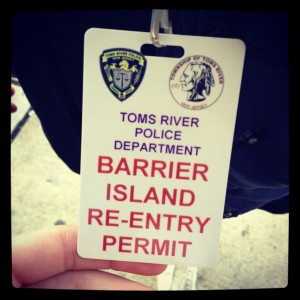What is Oral History?
Oral history is, in very basic terms, the gathering and study of historical information about people’s experiences using material gained through interviewing. Interviews are conducted with people who experienced a past event, with the aim of preserving their memories and perceptions as a record for future generations. In oral historical research, interviews are often recorded using an audio or video recorder, and these recordings are then transcribed into a text form that is easy to archive and make accessible. Recording and transcripts are then archived and made available for future use by researchers and the general public. In some cases, transcripts are edited into narratives, that present the ‘story’ of the interview subject in a more accessible format.
A key goal of Oral History is to help preserve the memories of people whose experiences might otherwise be lost in the course of time. In the past thirty years, numerous oral history programs have been created at universities as well as state and local historical societies. Some companies have even adopted the use of Oral History as a means of document their own institutional histories. Oral history programs focus on a wide range of themes and issues, from the historical experiences of Native Americans to recollections of the homefront during the Second World War. They share common ground in terms of theory and method, as well as the ultimate goal of recording experiences that otherwise would not be passed forward.
Our Approach

The Hurricane Sandy Oral History Project at The College of New Jersey was developed by a junior-level undergraduate seminar course, HIS 464: Hurricane Sandy Oral History Seminar, in the Spring of 2015. The course was designed to teach oral history theory and method, and then to apply these skills by conducting oral historical interviews with people who experienced Hurricane Sandy in New Jersey.
In terms of subject selection, the project has focused on breadth, gathering oral history interviews from a diverse range of people. Student teams have collected oral history narratives from residents, business owners, first responders, government officials, and people involved in long-term rebuilding. These come from over 14 different municipalities, as far north as Hoboken and as far south as Island Beach State Park. Students have located and selected interviews subjects on their own.
The student teams conduct the interviews on their own with their individual subjects. A standard question set is used to provide consistency, though the interviewers are free to pursue issues that are introduced by the interviewee. Interviews range widely in time, from 20 minutes to more than 2 hours. They are recorded using digital voice recorders.
Once complete, the interview recordings are catalogued, archived, and transcribed. These transcriptions are then archived as well, and are made available for public use. TCNJ holds copyright on all interviews and derived materials, and Deeds of Gift are retained by the Project Director and the Department of History.
Lastly, the students created an edited narrative from the transcript. This is a more readable, accessible text form of the interview. These are what we have made available on this website. The narratives are meant to capture the essence of an interviewee’s story, but present it in a way that is comfortable to a reader. The project aims to preserve, as much as possible, the casual tone and rhythm of the interview. Thus the narratives, very deliberately, read as if they were spoken.
If you would like to learn more about Oral History, or about the approach to Oral History taken by the Hurricane Sandy Oral History Project, please see the resources listed below or contact Dr. Matthew Bender, the Project Director at bender@tcnj.edu.
Resources
DeBlasio, Donna et al., Catching Stories: A Practical Guide to Oral History (Athens, OH: Swallow Press, 2009).
Janesick, Valerie, Oral History for the Qualitative Researcher (New York: The Guilford Press, 2010).
Perks, Robert and Alistair Thomson, The Oral History Reader (London: Routledge, 2006).
Ritchie, Donald, Doing Oral History (London: Oxford University Press, 2015).
